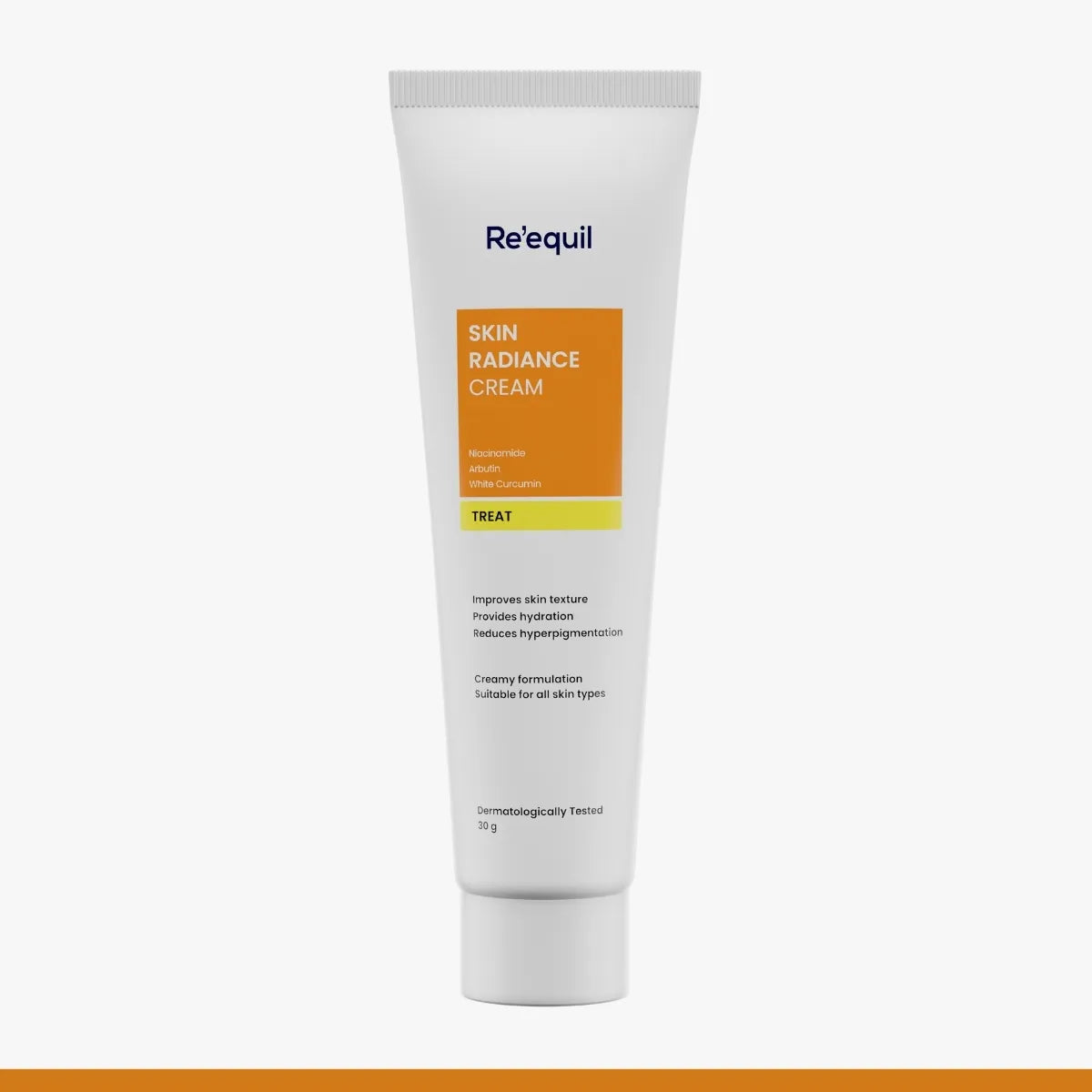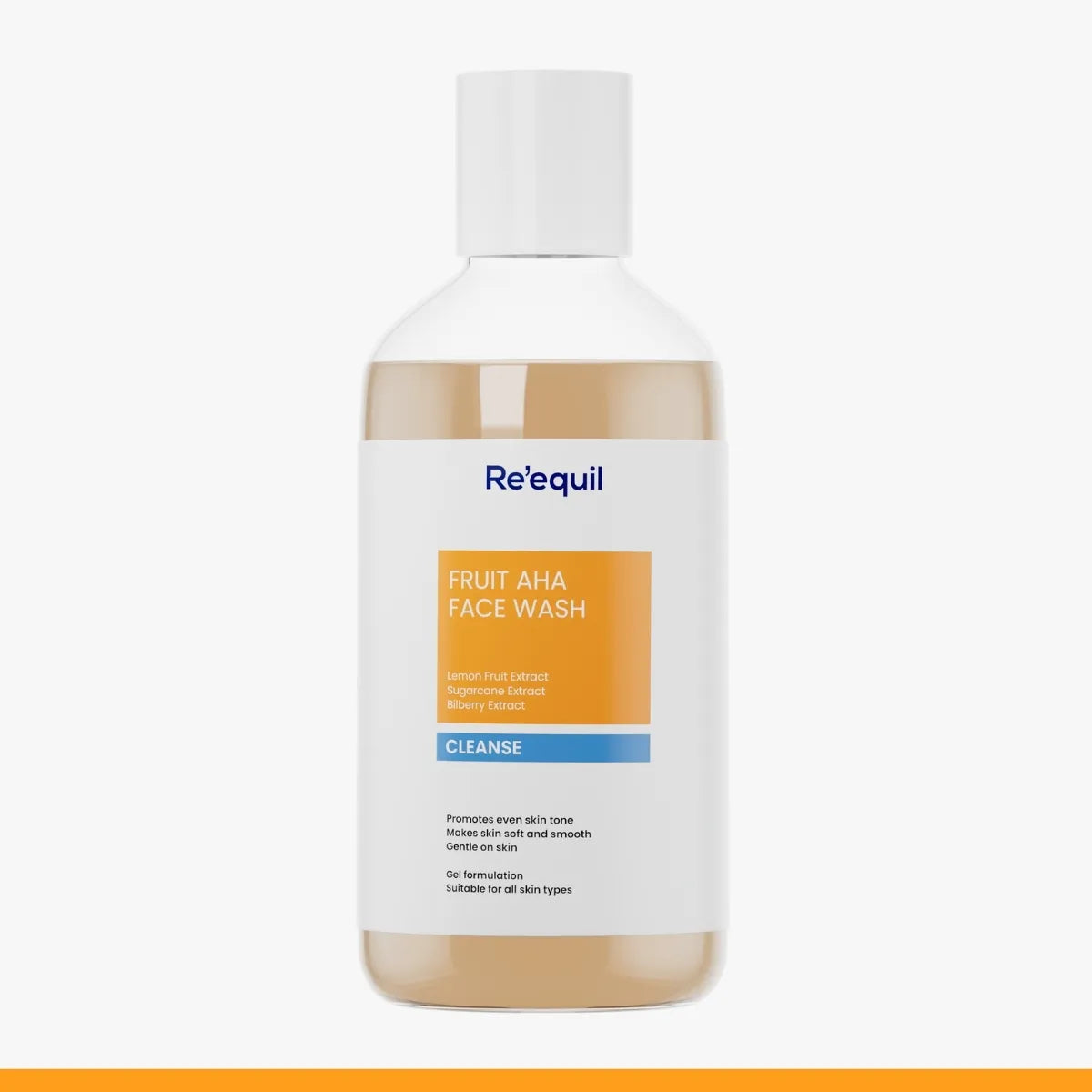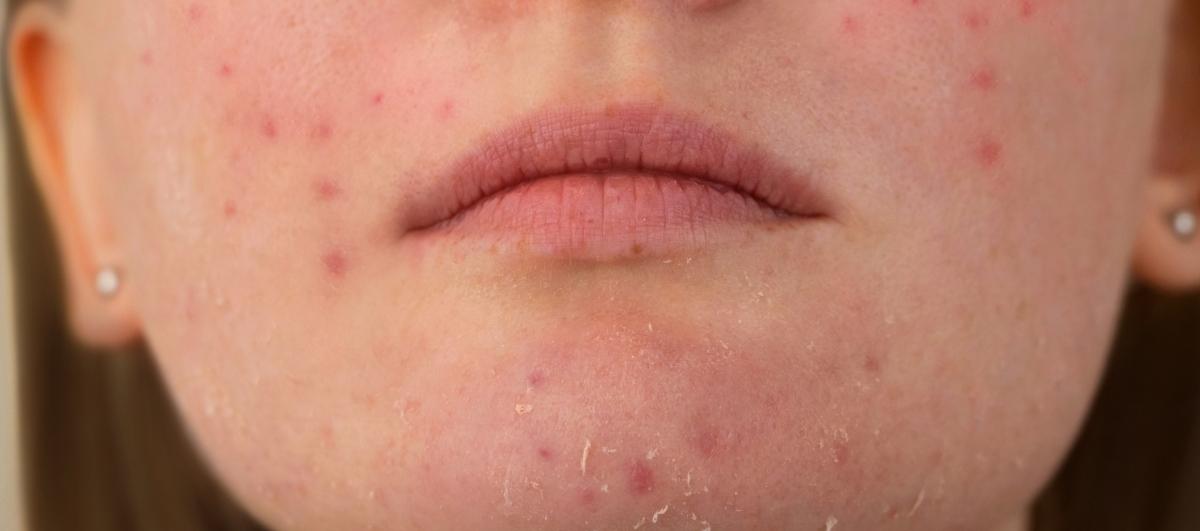Dry skin is a common skin type characterised by a lack of moisture and unregulated sebum production. When there is excessive loss of water from the trans-epidermal layer of the skin, it hampers the barrier function, making dry skin prone to premature signs of ageing.
This is associated with patchy dry skin, fine lines or wrinkles, pigmentation, acne, breakouts, age spots and dullness. Dry skin can be caused by a variety of factors, both internal and external. Some common causes of dry skin are discussed below.
-
Pollution
When the free radicals from dust, cigarette smoke, ozone interact with the lipid barrier layer of the skin, they strip it of the natural moisture content, leading to oxidative stress and premature ageing.
-
Harsh cleansers
Using harsh cleansers containing strong chemicals can disrupt the skin's natural pH balance and strip off its natural oils, resulting in dry patches.
-
Overexposure to sun
The middle layer of the skin when directly exposed to UVB radiation, eventually damages the collagen and fibre matrix of the skin, leading to uneven skin tone with dark blotches and discoloration. Sun exposure can cause the skin to lose moisture and become dry and pigmented.
-
Excessive scrubbing
Over-exfoliating or scrubbing the skin too vigorously can damage the skin's protective barrier and lead to dryness.
Understanding common skin concerns associated with dry skin
Excessive dry skin can lead to various skin issues. Here are some associated skin problems and quick ways to deal with them to help you alleviate dry skin and restore healthy, hydrated skin.
-
Irritant acne
Dry skin can trigger the skin to produce excess sebum, potentially leading to clogged pores and acne. However, keep in mind to opt for non-comedogenic moisturisers specifically formulated for dry or sensitive skin, usually enriched with anti-inflammatory ingredients like alpha bisabolol, betaine and glycerine. Their lotion-like texture prevents acne breakouts and helps soothe skin irritation.
-
Redness and Inflammation
Dry skin can weaken the skin's barrier, making it more susceptible to conditions like eczema, characterised by red, itchy, inflamed patches of skin. Incorporating products that are fragrance-free and enriched with calming ingredients like aloe vera, allantoin, cydonia oblonga leaf extract and niacinamide can help pacify irritated or damaged skin.
-
Fine lines and wrinkles
Severe dryness can accelerate the appearance of fine lines and wrinkles, especially in areas prone to movement like eyes and mouth. Using a nourishing moisturiser power-packed with ingredients like hyaluronic acid, ceramides and mango seed butter helps restore skin hydration and elasticity.
-
Skin discoloration
Dry patches can sometimes lead to skin discoloration or uneven skin tone. Use of a mild cleanser enriched with AHAs and Vitamin C coupled with gentle exfoliation helps remove dead skin cells and promote a more even-toned complexion.
-
Dark circles, wrinkles and puffy eyes
Dry skin can particularly make the skin around the eyes appear dull and accentuate the appearance of dark circles. This leads to decreased skin elasticity, thereby exposing the blood vessels under the eyes and wrinkles. Opting for collagen-boosting and anti-inflammatory under eye creams enriched with ingredients such as chenopodium quinoa extract, white curcumin and pterocarpus marsupium extract can prove beneficial.
Morning Radiance: A nurturing day routine for dry skin and associated acne issues
A daytime skincare routine is crucial for individuals with dry skin type because it helps address the specific needs and challenges associated with dryness. This includes balanced hydration, barrier protection, environment defence, sun protection and consistent effort. Initiate the routine by following these simple steps.
-
Citrus enriched cleanser
Start with a gentle, sulphate-free hydrating cleanser enriched with AHAs and citrus. These would replenish and hydrate your skin without stripping its natural oils.
-
Alcohol-free toner
Adopt a hydrating and alcohol-free toner enriched with power ingredients like hazelnut extract and allantoin to balance the skin's pH, restore hydration and improve skin tone.
-
Hydrating serum
Applying a hydrating serum with ingredients like hyaluronic acid or glycerine can help boost moisture retention.
-
Deep nourishing moisturiser
Use a rich, nourishing non-comedogenic moisturiser with ingredients like ceramides, shea butter, or natural oils to lock in moisture and improve the skin barrier.
-
Dry touch broad spectrum sunscreen
Finish with a broad-spectrum water-resistant sunscreen with SPF 50 that retains a 24-hour fresh matte look and protects the skin from UV damage that leads to skin inflammation and redness.
Note- Make sure to reapply moisturiser throughout the day, especially if you are in a dry environment and inculcate a routine of minimum 3-4 litres of water a day, to retain hydration from within.
Restorative Ritual: Evening Skincare Routine for dry and acne-prone skin
Nighttime is when the skin's natural repair and regeneration processes are at their peak. Implementing an effective evening skincare routine tailored for dry skin can prove beneficial to seal in moisture and restore the protective barrier on the skin's surface. Follow this simple routine.
-
AHA enriched cleanser
You may use the same gentle cleanser as in the morning to remove makeup, dirt and impurities.
-
Gentle exfoliation (2-3 times a week)
Adopt a mild exfoliant with ingredients like glycolic acid to remove dead skin cells and promote cell turnover. Avoid over-exfoliating, as it can worsen dryness.
-
Hydrating Toner
Follow up with a hydrating alcohol-free toner to replenish moisture and soothe the skin.
-
Serum
Apply a serum with ingredients like niacinamide or antioxidants to target specific concerns while providing hydration.
-
Moisturiser
Use a slightly heavier moisturiser or consider using a hydrating sleeping mask to provide intense hydration overnight.
Note- Always avoid hot water while cleansing, as it can strip natural oils from your skin and apply a thin layer of occlusive products (like petroleum jelly or a thick balm) over your moisturiser to lock in moisture during the night.
Hydration powerhouse: 5 Rescue ingredients to prevent and treat skin dryness leading to acne
A journey towards retaining clear, radiant skin often involves addressing multiple challenges associated with dry skin. Fortunately, modern skincare has harnessed the potential of powerful ingredients that can effectively fade discoloration, restore hydration levels and boost the skin's natural exuberance. Let us explore the crucial role of ingredients known to be most effective for a dry skincare routine.
-
Hyaluronic Acid
It forms a moisture-retaining barrier on the skin, helping to prevent water loss and maintaining optimal hydration levels. This is crucial in preventing and alleviating the discomfort of dry skin.
-
Ceramides I, III, VI
This unique concoction of ceramides 1, 2 and 6 is highly effective in replacing the hampered ceramides in the skin by minimising moisture loss and improving hydration. This perfect lipid network forms a protective layer on the skin and drives out the pollutants, repairing damaged skin.
-
Sugarcane Extract
It contains lactic and glycolic acids. These possess mild exfoliating and calming properties. Thus, they help eliminate the dead skin cells and hydrate the skin effectively.
-
Mango Seed Butter
The fatty acids present in mango seed butter, such as oleic acid and stearic acid, nourish and condition the skin. These fatty acids help replenish the skin's lipid barrier, which is essential for retaining moisture and preventing dryness.
-
Madecassoside
Creams containing the madecassoside ingredient relax damaged skin and strengthen the skin barrier against various external stimuli. It is known to boost hydration levels, improve skin damage and firm up drooping skin.
Takeaway
Retaining moisture is essential for those with dry skin to prevent discomfort, support skin health and achieve a radiant complexion. Consistently using products enriched with dry skin specific ingredients and adopting suitable skin rituals that focus on maintaining optimal hydration can alleviate acne breakouts considerably and contribute to overall skin wellbeing.






